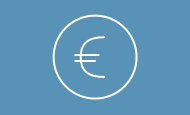Analysis of Grants to Israeli NGOs, Annual Reports 2012-2014
To read the full report, click here.
All of the details on the grants in this report were taken directly from publicly available submissions to the Israeli Registrar of Non-Profits (a department of the Ministry of Justice), and no changes were made to the sums. Some NGOs list the same donors with slightly different names; in order to create an accessible and understandable database, NGO Monitor adjusted some entries to establish uniformity. For this reason we have also corrected typos and other spelling mistakes.
In light of the central role played by politicized NGOs in public discourse regarding human rights, an informed debate on their activities requires transparency in their funding. The following analysis presents all the grants that were reported annually by 27 Israeli NGOs in the years 2012-2014, and sorts the data according to donor type (private, government and unclear), while also identifying funding originating from church groups. (For the full list of grants click here.)
Main findings:
- In 2012-2014, the 27 NGOs received a total sum of NIS 261,122,525 in grants and donations. 65% (NIS 169,728,500) from governments (through direct and indirect funding) and 34% (NIS 88,695,690) from private donors and foundations, while the source remained unclear for the remaining 1% (NIS 2,698,335).
- Of the 27 groups examined, 20 receive more than 50% of their funding from governments. The three NGOs receiving the highest share of foreign government funding are Yesh Din (93.5%), Terrestrial Jerusalem (91.2%), and Emek Shaveh (90.2%).
- Twenty-one governmental and intergovernmental entities fund Israeli NGOs (this includes funding by the EU, UN and the Human Rights and International Humanitarian Law Secretariat- see below). The EU is the largest donor, providing NIS 28 million, followed by Norway and Germany.
- Of NIS 88,695,690 received in private funding, leading foundations are the Sigrid Rausing Trust (14%), the New Israel Fund (12%), the Open Society Institute (7%), the Moriah Fund (4%), the Social Justice Fund (3%), and the Rockefeller Brothers Foundation (2%).1
- 19% (NIS 50,325,109) of the funding is donated by Christian groups (churches or Christian humanitarian aid organizations). Most of these institutions receive large sums of government funding. 5% of donations were given by private religious institutions and/or donors.
Funding is generally granted by two types of donors:
Government Funders
- Foreign governments: Many Western countries see the promotion and upholding of human rights and providing of humanitarian aid as part of their foreign policy. Funding for these purposes is channeled through embassies, foreign ministries, departments and ministries of international aid and development, consulates, and aid agencies and programs.
- Regional/international bodies: The EU, UN, and the Human Rights and International Humanitarian Law Secretariat2 are fully funded by governments and have their own disbursal mechanisms for human rights and humanitarian aid purposes, which generously fund Israeli NGOs.
- Indirect government funding: Governments provide sums estimated in the range of hundreds of millions of euros per years to external bodies, including humanitarian aid organizations, Christian groups, and various funds and foundations for the non-governmental groups to promote human rights and humanitarian aid. In certain cases, these entities are also funded almost entirely by governments.
Private Funding
- Private foundations: Some non-profits that provide funds to NGOs have their own endowments, from which they disburse according to their objectives; others serve as a conduit for donations from private individuals.
- Private donors: Private individuals in Israel and abroad (including bequests) also directly donate to Israeli NGOs.
Due to unclear, partial, and misspelled reporting, initially NGO Monitor could definitively categorize only 68% of the grants listed in the annual reports. After intensive research and crosschecking, NGO Monitor has succeeded in categorizing 99% of donors as either private or governmental.
Methodology
The NGOs examined meet all of the following criteria:
- Politically active in the Arab-Israeli conflict.
- Registered in Israel as a non-profit association (Amuta) or as a corporation for the public benefit, and report their income annually.
- Received at least one (direct or indirect) grant from a foreign government.
- Conduct a considerable part of their activities abroad, including: involvement in the Goldstone Report (following the 2008-2009 Gaza War); the Schabas/Davis Report (following the 2014 Gaza War); ICC campaigns; lobbying the EU, US and UN.
Alternative Data Sources: The vast majority of the grants and donations were taken from the annual reports as submitted by NGOs. In certain cases these reports were unavailable, and the data was taken from alternative sources such as quarterly or other submissions to the Israeli Registrar of Non-Profits.
Footnotes
- For more information on these foundations, see: http://www.ngo-monitor.org
- “The Human Rights and International Humanitarian Law Secretariat” is a joint government funding mechanism of Sweden, Switzerland, Denmark, and Netherlands. This report defines this body as a separate foreign entity, similar to the EU and UN.
In the Media
- Why Israel's NGO Bill is Vital Evelyn Gordon, Commentary Magazine 01/01/1970
- The Problem is the EU, Not the NIF Evelyn Gordon, Commentary Magazine01/01/1970


